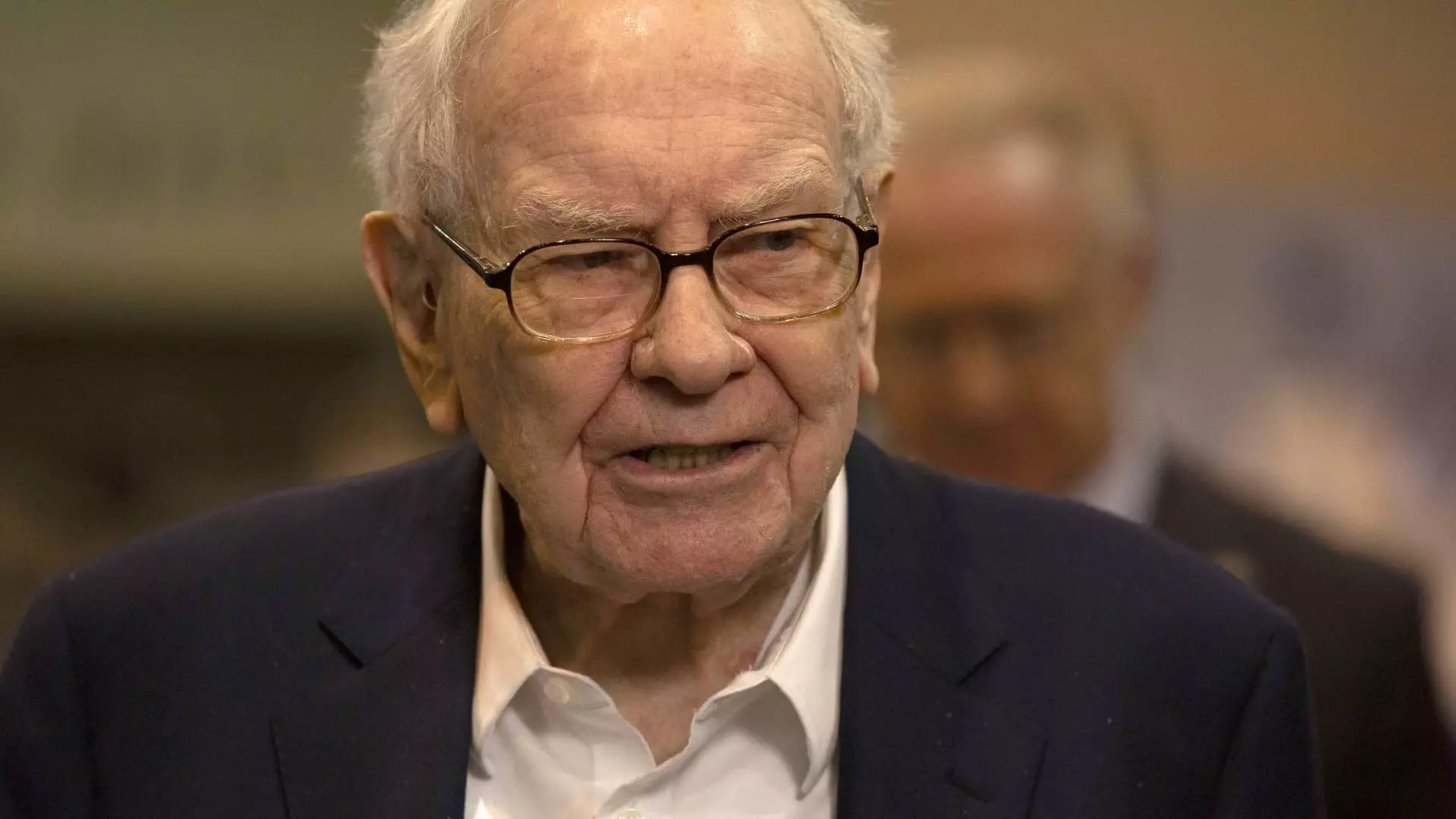Berkshire Hathaway Inc. is making headlines once again, with its cash reserves exceeding a staggering $325 billion by the close of the third quarter. This marks an extraordinary increase from the previous quarter, where the figure was approximately $276.9 billion. The financial behemoth, under the stewardship of Warren Buffett, is strategically hoarding cash, which raises several questions about the future trajectory of both the conglomerate and the broader market dynamics.
Warren Buffett, famously dubbed the “Oracle of Omaha,” has been engaged in a significant portfolio adjustment as he continues to sell off major equity holdings. The reduction of his stakes in blue-chip companies like Apple and Bank of America is particularly noteworthy. In fact, Berkshire Hathaway slashed about a quarter of its Apple investment in the third quarter alone, marking a trend of sell-offs that have persisted over the past four quarters. This behavior is revealing and suggests a calculated shift in investment philosophy, especially in an era when interest rates and inflation are gripping concerns.
The total stock sold by Berkshire during the third quarter reached an impressive $36.1 billion. Notably, Buffett has opted against repurchasing any shares during this time, an action that could be interpreted in various ways. On one hand, it might demonstrate cautious optimism regarding Berkshire’s intrinsic value. On the other, it could signal an anticipation of market recalibration, where Buffett believes that repurchasing at current prices would yield diminishing returns. The second quarter also reflected a noticeable drop in repurchase activity, as Berkshire bought back only $345 million in shares, compared to $2 billion in the preceding quarters.
What Buffett’s cash strategy highlights is his time-tested philosophy of waiting for the right opportunity. The Berkshire chairman has made it abundantly clear that he is willing to buy back shares only when they are presented at a price significantly below the company’s estimated intrinsic value. This cautious posture is indicative of Buffett’s long-standing investments being met with high valuations that may not reflect their underlying economic realities.
The stock performance of Berkshire Hathaway’s Class A shares has been compelling, showcasing a 25% increase year-to-date, overshadowing the S&P 500’s 20.1% growth over the same period. The conglomerate’s market capitalization recently crossed the $1 trillion mark, illustrating its robust standing in the current investment landscape. Yet, even as the overall market appears to catapult upwards due to easing inflation and lowered interest rates, some economic indicators have started to show troubling signs, particularly with rising Treasury yields.
Notable investors, including hedge fund titan Paul Tudor Jones, have begun sounding alarm bells over burgeoning fiscal deficits and the implications of government spending — topics that are particularly relevant with impending electoral contests. The overarching economic climate reflects uncertainty, and Buffett’s cash-heavy position could very well be a hedge against this volatility.
Buffett’s recent divestments could also be interpreted as a strategic foresight into future tax implications. Given discussions around potential increases in capital gains tax rates designed to curb national deficits, the selling of stock holdings might set the stage for a more favorable tax environment for Berkshire Hathaway’s shareholders. This nuanced approach not only showcases Buffett’s understanding of market psychology but also reflects a pragmatism that has typified his investment philosophy for decades.
As the year closes, investors will be watching how Berkshire Hathaway maneuvers through this landscape. Will Buffett deploy his cash reserves strategically for new acquisitions or wait for the right moment to re-enter the market? The answers remain uncertain, but one thing is clear: Buffett’s decisions will continue to be scrutinized and will have implications far beyond the confines of his conglomerate.
In sum, Berkshire Hathaway exemplifies a paradox in investing — the simultaneous approach of cautious conservatism amid opportunistic selling. As we delve deeper into the complexities of the company’s strategy, it becomes evident that Buffett’s legacy is anchored not merely in wealth accumulation but in a philosophy that embraces patience and a keen understanding of market dynamics.

Leave a Reply